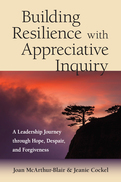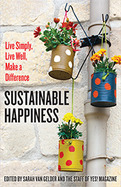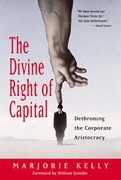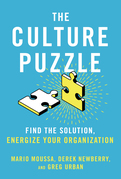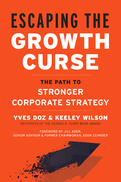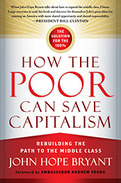Leaders cannot predict the complex challenges they are called on to face. Veteran consultants Joan McArthur-Blair and Jeanie Cockell show that Appreciative Inquiry (AI) is an invaluable tool to build resilience.
AI is a widely used change approach that emphasizes identifying what's working well in a system. Leaders can use AI to increase their ability to weather the storms they'll inevitably encounter and be resilient. A profound guide, this book features personal accounts from leaders across a variety of settings describing how they've practiced appreciative resilience in the ongoing cycle of hope, despair, and forgiveness.
In The Divine Right of Capital, Kelly argues that focusing on the interests of stockholders to the exclusion of everyone else's interests is a form of discrimination based on property or wealth. She shows how this bias is held by our institutional structures, much as they once held biases against blacks and women.
The Divine Right of Capital exposes six aristocratic principles that corporations are built on, principles that we would never accept in our modern democratic society but which we accept unquestioningly in our economy. Wealth bias is a holdover from our pre-democratic past. It has enabled shareholders to become a kind of economic aristocracy. Kelly shows how to design more equitable alternatives-new property rights, new forms of corporate governance, new ways of looking at corporate performance-that build on both free-market and democratic principles.
We think of shareholder primacy as the natural law of the free market, much as our forebears thought of monarchy as the most natural form of government. But in The Divine Right of Capital, Kelly brilliantly demonstrates that it is no more "natural" than any other human creation. People designed this system and people can change it.
We need a change of mind as profound as that of the American Revolution. We must question the legitimacy of a system that gives the wealthy few-the ten percent of Americans who own ninety percent of all stock-a disproportionate power over the many. In so doing, we can fulfill the democratic principles of our nation not only in the political sphere, but in the economic sphere as well.
- Updated paperback edition includes a new chapter and a Reader's Guide
- Explores the real causes of the Enron fiasco and other recent corporate scandals
- Explodes the myth that the stock market is "democratizing" wealth
- Gives practical guidance to help employees and communities change corporate governance and unfetter the genius of the free market
2021
In a world that changes at a dizzying pace, what can leaders do to build flexible and adaptive workplaces that inspire people to achieve extraordinary results? According to the authors, the answer lies in recognizing and aligning the elusive forces—or the “puzzling” pieces—that shape an organization's culture.
With a combined seventy-five years' worth of research, teaching, and consulting experience, Mario Moussa, Derek Newberry, and Greg Urban bring a wealth of knowledge to creating nimble organizations. Globally recognized business anthropologists and management experts, they explain how to access the full power of your culture by harnessing the Four Forces that drive it:
Vision: Embrace a common purpose that illuminates shared aspirations and plans.
Interest: Foster a deep commitment to authentic relationships and your organization's future.
Habit: Establish routines and rituals that reinforce “the way we do things around here.”
Innovation: Promote the constant tinkering that produces surprising new solutions to old problems.
Filled with case studies, personal anecdotes, and solid, practical advice, this book includes a four-part Evaluator to help you build resilient organizations and teams. The Culture Puzzle offers the definitive playbook for thriving amid constant transformation.
As companies mature, their underlying growth naturally slows—this is called the 'growth curse'. It's a pervasive problem that plagues companies, CEOs, and board members alike. In order to safeguard a company's future, a strategic form of governance in which the board plays a more active role on behalf of all stakeholders, must be activated.
This book is comprised of 3 parts. First it shows companies how to identify the traditional traps that hinder growth. The second part provides companies with a blueprint for building their board, defining long-term strategy, and adjustments necessary to serve continued growth. The final part delves into the specific ways that the board and executives must collaborate in relation to strategic renewal.
Reimagining the limits of growth and how companies are run as a consequence provides an escape from the 'growth curse' at last.
"When John Hope Bryant talks about how to expand the middle class, I listen. I urge everyone to read this book and discover for themselves John's great ideas for creating an America with more shared opportunity and shared responsibility."
-- President Bill Clinton
Business and political leaders are ignoring the one force that could truly re-energize the stalled American economy: the poor. Instead of spending millions pursuing "emerging markets" in far-flung, corrupt, and even dangerous countries, companies can find enormous untapped potential right under their noses. If we give poor communities the right tools, policies, and inspiration, they will be able to lift themselves up into the middle class and become a new generation of customers and entrepreneurs.
John Hope Bryant knows this firsthand. Raised in poverty-stricken, gang-infested South Central Los Angeles, he became a successful businessman and founded Operation HOPE, a nonprofit that promotes "silver rights"-financial dignity and empowerment-for millions.
The poor are not stupid or lazy, Bryant writes, they've simply been abandoned. Business loans, home loans, and financial investments have vanished from their communities. After decades of deprivation they lack bank accounts, decent credit scores, and any real firsthand experience of how a healthy free enterprise system functions. The young have no role models for success other than athletes, entertainers, and, sadly, criminals.
Bryant exposes the historical roots of this unfortunate situation, explains why the solutions tried so far have proved insufficient, and offers a way forward. He lays out what he calls a Marshall Plan for our times, a series of straightforward, actionable steps to build financial literacy and expand opportunity so that the poor can join the middle class.
Fully 70 percent of the American economy is driven by consumer spending, but more and more people have too much month at the end of their money. John Hope Bryant aspires to "expand the philosophy of free enterprise to include all of God's children" and create a thriving economy that works not just for the 1 percent or even the 99 percent but for the 100 percent.


